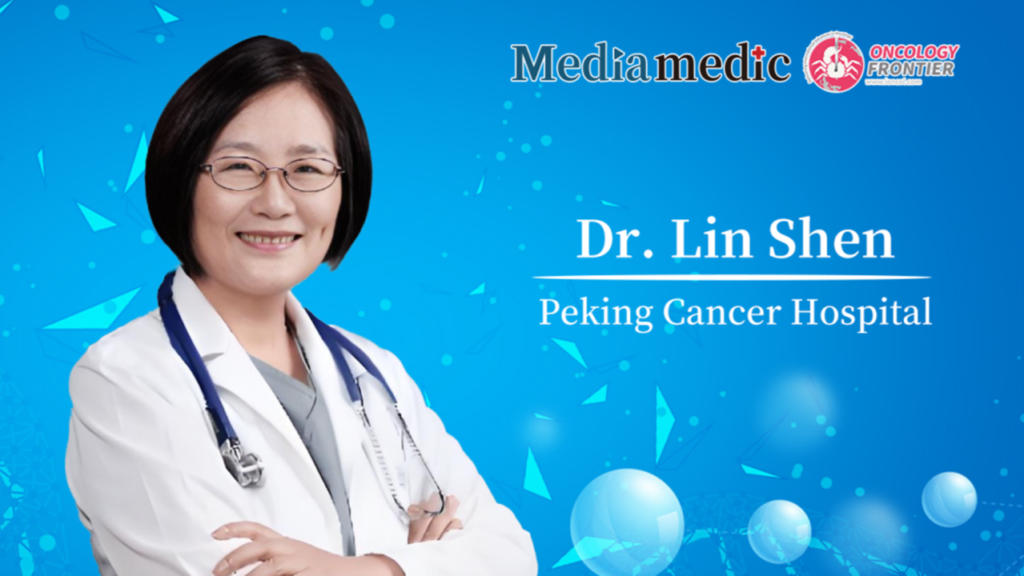
In June 2024, the 14th Annual Meeting of the Chinese Gastrointestinal Oncology Group (CGOG) and the Peking University Digestive Tumor Forum was held in Beijing. With the theme of "Innovation, Win-Win, Excellence," the conference focused on precision diagnosis and treatment, as well as translational research in digestive system tumors. It also covered the latest research progress and challenges in clinical practice. During the event, a reporter from Oncology Frontier conducted an exclusive interview with the conference chair, Dr. Lin Shen from Peking Cancer Hospital. Below is the interview for readers.Oncology Frontier: The CGOG conference has been committed to nurturing young physicians and promoting the development of translational and clinical research in China. This marks the 14th edition of the event. As the chair of this year’s CGOG, could you tell us what innovations were introduced compared to previous conferences?
Dr. Lin Shen: We place great emphasis on training young doctors. To this end, we have organized many special sessions, including MDT (Multidisciplinary Team) competitions, contests, and training programs aimed at enhancing individual skills. Our conference theme has always focused on professionals in digestive system tumors—both clinical practitioners and researchers—encouraging exchange and improvement in their fields. Unlike many meetings that are purely educational, I believe that young people can absorb the information they need here. They can learn about the latest developments in the field, understand key challenges, and gain insight into the future of digestive system tumor research. This will significantly benefit their future career development and help them define their direction. Therefore, we need the active participation of professionals, as well as many young scholars and doctors.
Oncology Frontier: The CGOG has facilitated academic exchanges in the field of gastrointestinal tumors within China, with over 100,000 views per session. Could you share the key focus areas of CGOG’s work in the upcoming year?
Dr. Lin Shen: As always, we will continue to strengthen multicenter collaborations and conduct large-scale randomized controlled clinical trials. In the early stages, we can engage in exploratory studies, which will lay a solid foundation for future multicenter collaborations or large-scale randomized trials that could change clinical practice. Clinical research is crucial for transforming clinical practice, and its success depends on our understanding of diseases. In early-stage clinical research, our growing understanding of treatment sensitivities, patient selection, and resistance mechanisms enables us to design more reasonable clinical trials that produce positive results and ultimately change clinical practice. I believe that clinical research and translational research, especially collaborations with basic scientists, are becoming increasingly inseparable.
Oncology Frontier: In recent years, China has made remarkable progress in the development of targeted therapies, such as the humanized monoclonal antibody TST001 targeting Claudin18.2 in the field of gastric cancer. Could you share the research data and future outlook for this area?
Dr. Lin Shen: We are currently conducting research on the important target Claudin18.2 in digestive system tumors, and we have published two significant studies internationally. The results indicate that for patients with high expression of Claudin18.2 in gastric cancer, the combination of Claudin18.2-targeted monoclonal antibodies with chemotherapy can extend survival and improve quality of life to some extent. However, this still falls short of meeting clinical needs. Gastric cancer’s heterogeneity is much greater than other solid tumors, and the efficacy of targeting Claudin18.2 is not as satisfactory as immunotherapy or HER2-targeted therapy for gastric cancer. One of our challenges is improving the effectiveness of Claudin18.2-positive gastric cancer treatments. Currently, we are exploring the combination of the Claudin18.2-targeted drug TST001 with chemotherapy, alongside PD-1 immune checkpoint inhibitors. Before this, we conducted numerous translational studies and found that patients with high Claudin18.2 expression tend to have low PD-L1 expression, suggesting a potential synergy between the two. Preliminary lab research showed that PD-L1 expression increased after Claudin18.2-targeted therapy, indicating a synergistic effect. After validation in basic lab and animal models, we proceeded with further clinical trials. Early clinical analysis suggests that combining immunotherapy with Claudin18.2-targeted therapy and chemotherapy improves efficacy. This is only the result of early Phase II trials, and we are preparing to launch Phase III clinical trials, with one project already recruiting patients. We also plan to conduct global research to determine whether the combination with PD-1 inhibitors is superior to targeting Claudin18.2 and chemotherapy alone.
Current Claudin18.2-targeted therapies also include ADC drugs, and there is exploration into other areas like bile duct and pancreatic tumors. In theory, all tumors with high Claudin18.2 expression could benefit from Claudin18.2-targeted drugs. Additionally, at this year’s ASCO meeting, we presented perspectives on Claudin18.2 CAR-T therapy, which has shown promising results in the treatment of gastric cancer. Overall, after multinational companies identified Claudin18.2 as a promising target for gastric cancer, we have not stopped our research efforts. We continue to explore, optimize, and seek new treatments to improve the survival and prognosis of gastric cancer patients.
Dr. Lin Shen
Director, Department of Digestive Oncology, Peking Cancer Hospital
Director, Phase I Clinical Trial Ward, Peking Cancer Hospital
Former Vice President, Peking Cancer Hospital
Deputy Director, Beijing Cancer Prevention and Research Institute
Beijing Scholar
Chair, Committee of Tumor Precision Treatment, Chinese Anti-Cancer Association
Founding Chair, Clinical Research of Tumor Drugs Committee, Chinese Anti-Cancer Association
Chair, Clinical Research Expert Committee, Chinese Society of Clinical Oncology
Incoming Chair, Gastric Cancer Expert Committee, Chinese Society of Clinical Oncology
Vice Chair, Colorectal Cancer Committee, Chinese Anti-Cancer Association
Chair, Clinical Oncology Committee, Chinese Female Physicians Association


